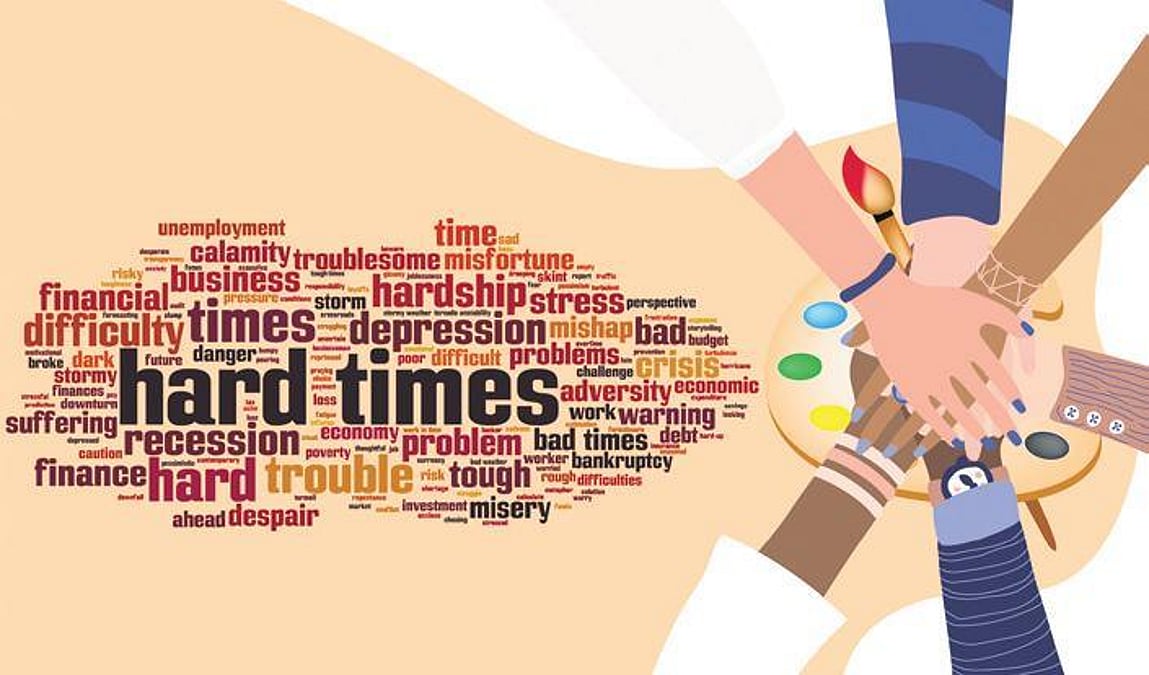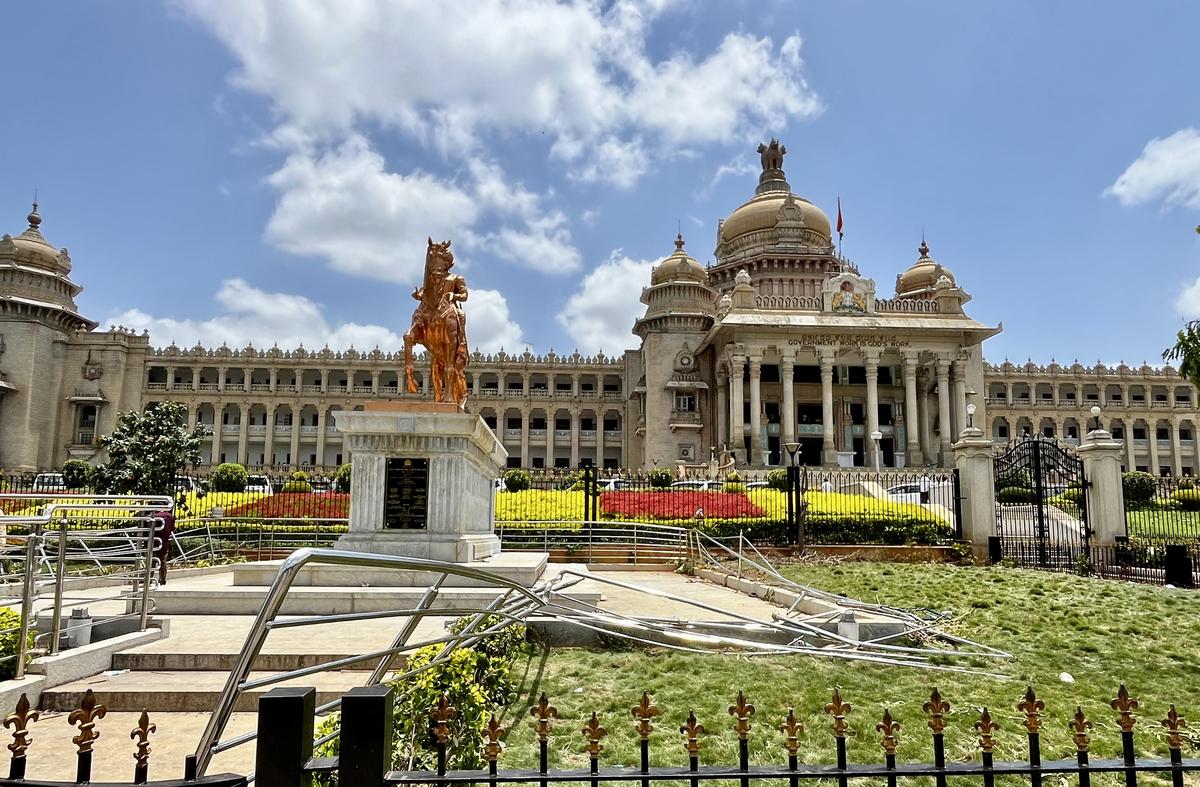A librarian working under the Department of Public Libraries in Karnataka reportedly took his own life after enduring months without pay, leaving behind a note blaming the government’s failure to release salaries for three consecutive months. The incident, which occurred in a small town in northern Karnataka, has shocked the state’s education community and reignited debates about the treatment of contractual and rural government employees. Colleagues described the deceased as a dedicated professional who continued reporting to work despite severe financial hardship, often borrowing money to sustain his family.
According to initial reports, the librarian had repeatedly appealed to higher authorities for salary disbursement, but procedural delays in fund allocation allegedly prolonged his distress. His handwritten note, now in police custody, accused the system of “indifference toward the plight of the lower staff” and expressed despair over unpaid dues. Family members revealed that the financial strain had forced him to default on rent and school fees for his children. Local associations have demanded immediate compensation, suspension of responsible officials, and timely release of pending payments to prevent further tragedies.
The state’s librarian association has called for a statewide protest, urging the government to take accountability and fix systemic lapses in fund management. Many librarians and non-teaching staff across Karnataka claim to have faced similar salary delays due to administrative bottlenecks and budget reallocations. The tragic incident has now become emblematic of a larger institutional failure—one that underscores the emotional and economic vulnerability of those serving in low-income public sector positions.
The suicide of the Karnataka librarian has drawn widespread condemnation from educational circles, human rights groups, and political leaders who have labelled it a “systemic failure of governance.” Activists have demanded that the government immediately conduct a high-level probe into why salary disbursements for library staff were delayed across districts. Many have pointed out that the issue is not new — employees have complained for years about irregular payments and lack of administrative coordination between district and state-level offices. The tragedy has also exposed the widening gap between promises of efficient governance and the realities faced by ground-level employees.
Reports from various taluks suggest that hundreds of librarians and assistants in rural areas are still waiting for pending wages. Some libraries, already operating with minimal staff and resources, have seen employees resorting to part-time work to make ends meet. Associations have documented multiple complaints sent to the Directorate of Public Libraries, which allegedly went unanswered. Critics argue that despite digitalisation drives and budget announcements, the government has not implemented a mechanism ensuring monthly salary credit. The recent suicide, they say, must serve as a wake-up call for the state administration.
Educational activists have called for the immediate suspension of officials responsible for the delay, along with the release of all pending payments to employees under the Public Libraries Department. They have also demanded counselling and financial assistance for the deceased’s family, including educational aid for his children. Labour unions have stepped in, terming the issue as one of “economic exploitation through administrative inefficiency.” Statewide demonstrations by librarians and para-education workers are expected in the coming days, as pressure mounts on the government to take visible corrective steps.
According to insiders in the Finance Department, the delay may have stemmed from mismanagement in fund allocation under the District Library Authority. Each district receives funds separately, and some local bodies allegedly diverted these allocations toward maintenance or development projects. The lack of an integrated monitoring system has made it difficult for the Secretariat to track whether staff salaries were actually disbursed. Experts suggest that a centralised digital platform, similar to the HRMS model used for teachers, could prevent such lapses in future.

Chief Minister Siddaramaiah, while expressing sorrow over the incident, has assured that the government would take strict action against those found responsible. He added that the welfare of employees remains a top priority and instructed the Finance and Education Departments to conduct a thorough review. However, opposition parties have accused the administration of offering mere words without tangible reforms. They allege that financial mismanagement and bureaucratic lethargy have become routine in the handling of local government departments.
Meanwhile, the deceased librarian’s family has demanded justice and immediate release of compensation. His wife stated that despite repeated visits to the district office, officials failed to address their grievances. Community members and colleagues who gathered for his funeral voiced anger and helplessness, saying the incident reflects how the system values paperwork over people. Candlelight vigils and condolence meetings have been organised by educational forums across the state, transforming the individual tragedy into a broader movement for accountability.
Educationists argue that libraries, which play a critical role in rural learning and literacy, have long been neglected in state budgets. The workforce often faces irregular pay, outdated facilities, and lack of recognition. In some cases, librarians are required to perform duties outside their official scope, including administrative or event-related tasks for local bodies. This chronic undervaluation, combined with poor working conditions, has demoralised staff and threatened the sustainability of public libraries, especially in remote regions.
Public administration experts believe that the incident underscores a deeper crisis within decentralised governance. Funds meant for cultural and educational development often get delayed at the local level, where bureaucratic hierarchies slow decision-making. Without transparent audit systems or accountability measures, such delays can persist for months. They have urged the government to implement time-bound salary release protocols, automatic alerts for delays, and grievance redressal mechanisms accessible to all employees.
Psychologists have warned that economic uncertainty and job insecurity among lower-grade government employees are leading to rising cases of depression and anxiety. The librarian’s case, they say, should serve as a signal to introduce mental health support programs for employees under financial stress. They suggest confidential counselling, helplines, and awareness drives within departments to reduce stigma around seeking help. Experts also highlight the need for administrative empathy — ensuring that officials remain responsive to the emotional wellbeing of subordinates.
The Department of Public Libraries has reportedly ordered an internal inquiry, with district-level officers directed to submit reports on salary status within 10 days. However, union representatives remain unconvinced, arguing that temporary investigations rarely produce long-term change. They insist that the government should institutionalise reforms by linking salary accounts directly to the treasury through a state-wide HR system. The move, they argue, would eliminate dependence on district approvals and ensure uniform salary distribution.
The opposition parties have intensified their criticism, saying that while the government boasts about digital governance and employee welfare, the ground reality paints a starkly different picture. BJP and JD(S) leaders have sought a legislative debate on the issue, demanding the resignation of senior officials responsible for neglect. They also urged the government to release a white paper on salary arrears and disbursement irregularities across departments. The debate is expected to figure prominently in the upcoming Assembly session.
In the wake of public anger, the State Human Rights Commission has taken suo motu cognisance of the case. It has sought reports from the Chief Secretary and the Principal Secretary of the Department of Public Libraries within 15 days. The commission has stated that delay in salary payments violates the right to livelihood under Article 21 of the Constitution. It has emphasised that financial insecurity can lead to human rights violations, especially when public servants are forced into despair due to systemic negligence.
Civil society groups have launched online petitions demanding a “Librarian Dignity Charter,” a policy ensuring fair treatment and timely salaries for all library workers in Karnataka. Within days, the petition has garnered thousands of signatures from educators, students, and public figures. Several prominent authors have expressed solidarity, pointing out that libraries are vital spaces of knowledge that deserve better state support. Campaigners are also urging corporate CSR foundations to fund welfare programs for rural library staff.
The deceased librarian’s colleagues have pledged to continue his fight for justice by submitting memoranda to district collectors and legislators. They have also planned a peaceful march to Bengaluru to demand direct intervention from the Chief Minister. Many participants have vowed not to end their agitation until written assurances of timely salary disbursal are issued. The tragedy has united workers across various government departments who face similar financial neglect.
Policy experts have recommended a structural overhaul of the Public Libraries Department. They argue for digitisation of payrolls, timely fund allocation, and creation of an employee welfare corpus that can provide emergency financial relief during delays. The government is reportedly considering such proposals as part of an upcoming administrative reform plan. However, implementation will require cross-departmental cooperation and political will.
As the controversy deepens, the librarian’s death continues to resonate beyond bureaucratic circles. It has sparked discussions about ethics, responsibility, and empathy in public administration. The tragedy stands as a stark reminder that governance failures are not abstract — they have human faces, families, and futures cut short. The need for reform is now urgent, and how the government responds will determine whether this death becomes a forgotten statistic or a turning point for change.
Public Outrage and Institutional Accountability
Following the incident, the Education Department has come under intense scrutiny. Several employees across districts have confirmed irregularities in salary payments over the past few months, citing bureaucratic negligence and lack of coordination between the Finance and Library departments. Social media platforms were flooded with messages demanding justice, as teachers, librarians, and clerks shared their grievances under a unified digital campaign. Civil society organizations have joined the call for systemic reform, urging authorities to implement direct benefit transfers and digital transparency in salary processing.

Political reactions have also been swift. Opposition leaders accused the government of neglecting grassroots workers, who form the backbone of the state’s educational infrastructure. The Chief Minister’s Office, meanwhile, announced a preliminary inquiry and assured that pending salaries would be released within a week. However, employee unions remain skeptical, noting that similar assurances in the past failed to bring lasting solutions.


Human Cost of Administrative Neglect
Beyond statistics and statements, the librarian’s death exposes the human toll of administrative apathy. It reflects how bureaucratic inefficiencies can quietly erode lives, especially among lower-grade employees struggling under financial precarity. The tragedy has sparked introspection within government circles about the moral responsibility of ensuring timely remuneration for public servants. As grief continues to ripple through the education sector, many insist that reform cannot wait—because delayed pay isn’t just a financial issue; it’s a matter of dignity, survival, and justice for those who keep public institutions running
Follow: Karnataka Government
Also read: Home | Channel 6 Network – Latest News, Breaking Updates: Politics, Business, Tech & More

